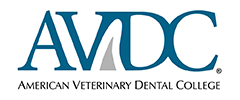General Resident Training Requirements
Listed below are the training requirements for the current year. If you would like to see changes in requirements from previous years they are listed on the Resident Services page.
Training Requirements
I. Graduate Veterinarian
Be a graduate of an accredited college or school of veterinary medicine and be legally qualified to practice veterinary medicine in a US State or Canadian province or in another country.
II. Completion of an Internship
1. Completion of a formal 12 month rotating internship program that includes rotations through a broad range of clinical services.
OR equivalent as described in 2.
2. Practical, postgraduate time (minimum of 18 months) in general small animal practice that sees a wide range of patients (types of disease) may be acceptable to the residency site/mentor. The applicant is to provide a description of the time spent at that facility, the range of clinical patients seen, facilities available, and staff available to consult.
The RPAC will need to review and approve the description and approval by the proposed residency site/ mentor of the non-rotating internship applicant prior to acceptance into an AVDC® residency program.
III. Completion of Case Logs.
Keep a complete Case Log using DMS approved format conforming to the AVDC® case log requirements current on the date of the procedure. A dental chart must be available for all logged cases and completing MRCLs.
IV. Publication.
One publication approved by the Credentials Committee are required. See the Publication document for details (Information for Registered Residents).
V. Other Specialty Hours
40 hours of postgraduate training in each of the following disciplines: Anesthesia, Surgery, and Radiology, supervised by Diplomates of the relevant specialty colleges.
VI. Radiograph Sets
Submit a full mouth radiograph set of a dog and cat (Small Animal Diploma) or horse (Equine diploma). Radiograph sets must be submitted before the end of the first year and an approved set completed before the end of the second year of the residency program.
VII. Annual Report
Submit an on-time Annual Report of training program activities.
VIII. Fees
Payment of a Training Program Registration Fee and an annual fee is required of all applicants. A credentials application fee is required at the time of submission of a completed credentials application package. The credentials application fee is separate from the examination fee.
Equine Resident Exceptions due to Newly formed Specialty:
For Equine Dental Residents, the supervising Diplomate can be an AVDC® Diplomate or AVDC®EQ Diplomate, or, for a maximum of one third of the required 65 directly diplomate supervised clinical dental service weeks, an EVDC Diplomate or EVDC (Eq) Diplomate; twenty-four of the 65 week direct diplomate-supervision time must be spent with an Equine Specialty Diplomate.
English is the official language of AVDC®. All documents, forms and examinations provided by AVDC® are written in English, and all materials submitted by applicants and residents are to be written in English.
Use of Specialty Titles: The AVMA Principles of Veterinary Medical Ethics state: It is unethical for veterinarians to identify themselves as or in any way imply that they are members of an AVMA recognized specialty organization until such time as such certification has been awarded. AVDC® has adopted the Guidelines for Use of Specialty Titles, prepared by the American Board of Veterinary Specialties of the American Veterinary Medical Association.
By signing the AVDC® Training Program Registration form, an individual submitting an application for registration of a training program acknowledges that s/he may not use the terms ‘board eligible’, ‘board qualified’, ‘veterinary dental specialist’ or ‘veterinary dentist’, and may not make or imply any connection with AVDC® until such time as the individual passes the AVDC® examination and is awarded the AVDC® Diploma.
The registration of an AVDC® training program of an individual who is not in compliance with the policy stated above may be terminated by AVDC®, in which case the individual will not be permitted to complete the AVDC® credentials and/or the examination procedures, and, when appropriate, the circumstances may be reported by AVDC® to the individual’s State Board of Veterinary Medical Examiners.
